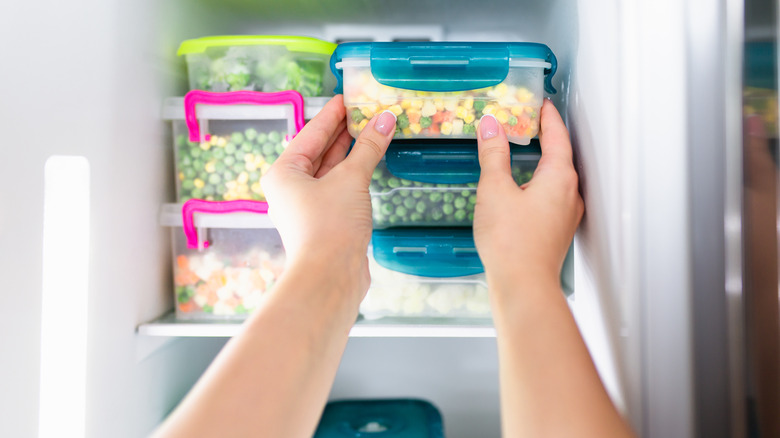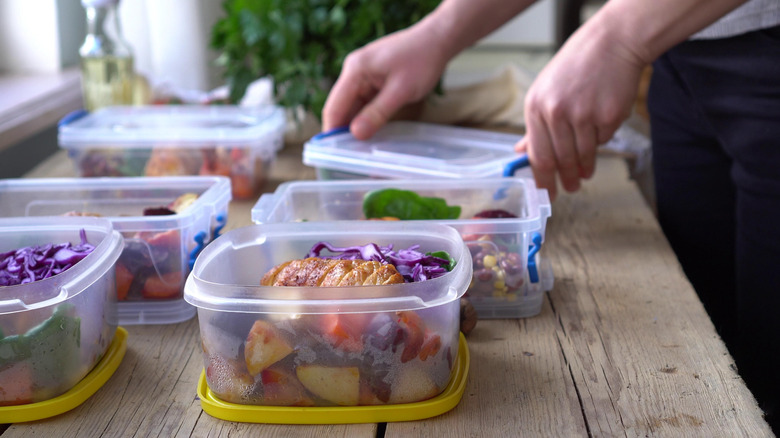Determining If A Food Is Freezable Is Easier Than You Think
Whether you're a parent or just a busy adult trying to juggle work, a social life, and countless other responsibilities, you know that weeknight meals can be a bit of a disaster. After all, the last thing you want to do — and the last thing you have time for — at the end of a long day is spend an hour or two in the kitchen whipping up a homemade dinner from scratch. Yet while the siren song of Chinese takeout is loud, you also know that cooking at home Monday to Friday is healthier and better for your wallet. So what are you to do?
Enter freezer meals. They've become so popular because they're just so convenient: Simply prepare your food ahead of time, package it up, put it in the freezer, and then pull it out and heat it up in minutes when you need a quick dinner. While some recipes you find on Pinterest are clearly labeled "freezer-friendly," others aren't — but can you still freeze them? Here's how to tell if a food or meal is freezable.
Freeze a small amount of food first
It would be a bummer to take the time to prepare and freeze a meal, only to take it out in a few weeks and realize the flavor or texture has been ruined after thawing it. A better solution if you're cooking something that you aren't sure can be frozen? Try freezing a small batch first. "If you're not sure if a favorite meal will handle the freezing and thawing process well, save just a small amount to freeze the next time you make it so you can do a test run," Quill recommends.
Note, however, that while you can freeze most things it doesn't mean that you should. "Certain ingredients just survive the freeze/thaw process better than others," Sweet Peas and Saffron explains. The blogger says that some foods that don't handle freezing well include yogurt, watery vegetables like cucumbers, and roasted veggies, which can become slimy when defrosted.

